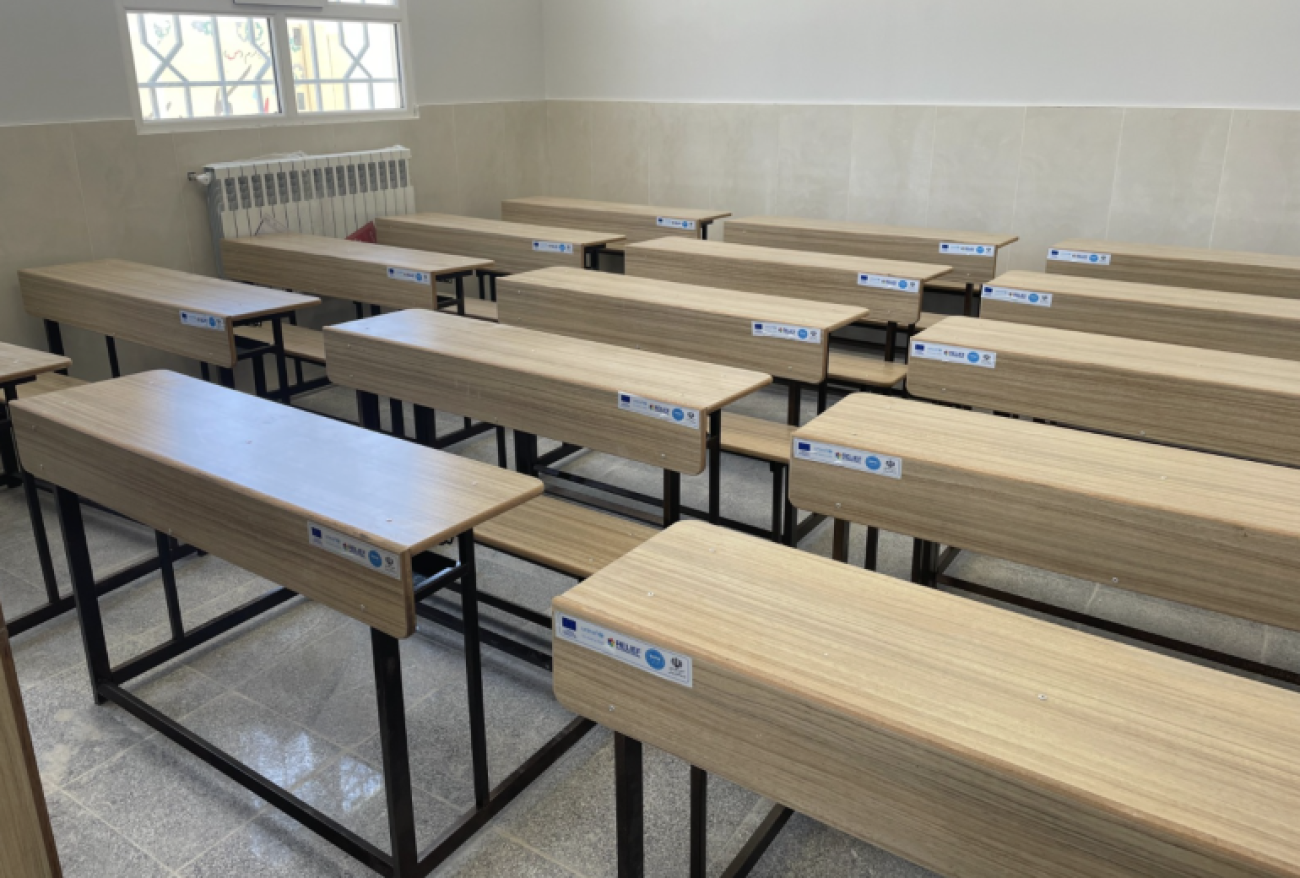UNICEF supports Children in less advantaged districts of Khorasan Razavi and Sistan and Baluchistan Provinces with newly built classrooms
Children in less advantaged districts of Khorasan Razavi and Sistan and Baluchistan Provinces will benefit from newly built classrooms and latrines in the scholastic year 2023-24 thanks to UNICEF support and funds provided by the European Civil Protection and Humanitarian Aid Operations (ECHO).
Through collaboration with the Ministry of Education (MoE), Bureau for Aliens and Foreign Immigrants Affairs (BAFIA) and Relief International, UNICEF supported the construction and equipment of ten classrooms across five schools with high numbers of refugee students in Khorasan Razavi and Sistan and Baluchistan provinces. To promote healthy hygiene practices among students, UNICEF also supported the construction and rehabilitation of Water, Sanitation, and Hygiene (WASH) facilities in these schools. This includes safe water access points and gender-segregated latrines.
Since 2022 with the growing number of enrollments of newly arrived Afghan students into formal schools, the public education sector in Iran is faced with some challenges, including shortage of physical space. The addition of classrooms will help address this problem by improving the student-to-teacher ratio, ultimately enhancing the quality of education. According to the MoE, in the 2022-2023 scholastic year, the number of refugee students in Iran was 670,000, with over a 30 per cent increase compared to the previous year.
By expanding educational spaces and improving other school facilities, all children, regardless of their legal status and family situation, can have equal access to quality education.



